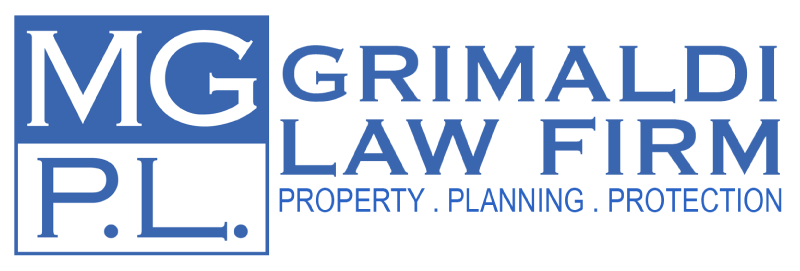Estate planning in Broward County makes the most of Florida’s strong home protection laws and tax benefits. Setting up a living trust helps keep your affairs private and makes it easier to pass on your belongings. Residents should also use Florida’s homestead benefits to protect their main home. Important steps include writing down your medical care wishes, choosing someone to make decisions for you, and protecting business assets through family partnerships or companies. Since Florida has no death tax, planning is simpler, though wealthy residents still need to think about federal estate taxes. By carefully combining trusts, naming who gets what, and managing online accounts and assets, you can build a complete plan that guards your wealth and helps avoid problems later.
Key Takeaways
- Leverage Florida’s Homestead Laws by registering your primary residence to protect against creditors and secure substantial tax benefits.
- Establish a living trust to maintain privacy and avoid probate, particularly beneficial for Broward County’s diverse property ownership situations.
- Create comprehensive healthcare directives and select a trusted local proxy to ensure medical decisions align with Florida regulations.
- Implement annual gift-giving strategies while alive to reduce taxable estate and maximize wealth transfer to beneficiaries.
- Consider family limited partnerships to protect business assets and facilitate smooth generational wealth transfer in South Florida.
Understanding Florida’s Homestead Laws
Florida has laws that protect people’s homes, and they work in three main ways: they shield your home from people you owe money to, help lower your property taxes, and set rules about who gets your home after you die. If you own and live in your home, you can get a tax break that cuts $50,000 from your home’s taxable worth. You also get another helpful benefit: your home’s tax value can’t go up by more than 3% each year under the Save Our Homes rule. To get these benefits, you must live in your home as your main residence and sign up through the local property office in Broward County. Getting to know these rules helps you protect your home and save money on taxes while following state law.
Living Trusts vs. Wills
People in Broward County often struggle to choose between living trusts and wills when planning what happens to their belongings after death. Both tools help pass down assets, but living trusts keep things private and make the transfer smoother by avoiding public court processes. Wills become public records and might face challenges in court. Important feelings to think about when picking between trusts and wills:
- Keeping family matters private when loved ones are grieving
- Feeling sure that belongings will pass to heirs without court delays
- Making things easier for family members during asset handover
- Having control over your assets while you’re alive
The best choice depends on your own needs, what you own, and your family situation. Living trusts usually give more options and privacy, but they need more work to set up and take care of over time.
Protecting Business Assets
Business owners in Broward County face special challenges when planning what happens to their companies and assets. They need good ways to protect what they’ve built and make sure their business can keep running smoothly when they’re gone.
| Protection Strategy | Main Goal | Benefits |
| Family Limited Partnership | Separate assets | Guard against losses |
| Buy-Sell Agreement | Transfer ownership | Keep business running |
| Professional Corporation | Business setup | Protect personal assets |
| Trust Integration | Save on taxes | Control who gets what |
Setting up these safety measures means understanding Florida’s rules about businesses and inheritance. Business owners need several types of protection working together – the right business structure, enough insurance, and clear plans for who takes over. These steps help keep personal belongings safe from business problems and make it easier to pass the business to family members or chosen successors.
Healthcare Directives and POAs
Medical care choices matter not just for your money but for your health and life. If you live in Broward County, setting up clear healthcare directions and giving power to someone you trust helps make sure your wishes are followed when you can’t speak for yourself. A healthcare proxy is someone you pick to make medical choices for you based on what you’ve said you want. Getting these legal papers right takes careful thought.
- When you can’t tell doctors what you want, your family may struggle with tough choices.
- If your healthcare plans are old or missing, you might get medical care you don’t want.
- Your healthcare proxy needs to know and follow your wishes about end-of-life care.
- If you don’t choose someone to make decisions, courts might pick someone who doesn’t know what you want.
Florida’s laws support both lasting power of attorney and healthcare surrogate papers, giving clear rules about who can make medical choices for you.
Estate Tax Planning Considerations
Estate tax planning is complex but important for Broward County residents, especially those whose wealth nears or goes beyond federal tax limits. Good planning helps reduce taxes while passing more wealth to family members. One helpful tool is yearly gift-giving, which lets people share their wealth during their lifetime without paying taxes. Giving to charities through special trusts or funds can cut taxes while helping good causes. For people with more wealth, other options include setting up family business partnerships, special life insurance arrangements, or home ownership trusts. Florida makes planning easier since it doesn’t have a state death tax. Still, residents need to watch out for federal estate taxes and keep track of any new tax laws that might affect their plans.
Beneficiary Designations Matter
Naming Your Heirs Makes a Big Difference Who gets your money and property after you die needs careful planning. When making or checking your estate plan in Broward County, you need to know about different types of heirs and keep their information up to date. Regular updates make sure your belongings go to the right people. People often make mistakes when naming heirs that can cause problems:
- Not updating heir information after big life changes like divorce, death, or new family members
- Not picking backup heirs, which might send assets through court
- Naming children as heirs without setting up proper trusts
- Having different heirs listed in wills versus accounts
Making sure all your heirs match across bank accounts, retirement funds, and insurance keeps your plan working smoothly and stops your money from going to the wrong people.
Digital Asset Management
As we live more of our lives online, planning for the future must include all the digital items and accounts that people in Broward County own. A good plan ensures that the people handling your estate can properly manage and share your digital belongings after you’re gone. To manage digital items well, keep a safe list of your online accounts, passwords, and any cryptocurrency details. Your estate plan needs to clearly state who can access your digital items under Florida’s laws about digital assets. Special care is needed for cryptocurrencies since they can be lost forever if not properly planned for. Write down the steps needed to get into secure accounts, including backup codes for extra security steps and where important digital items are kept. Keep this information up to date and make sure the people you choose can understand and use it when needed.
Special Needs Trust Planning
Taking care of loved ones with special needs means thinking about their money needs now and in the future. A special needs trust in Broward County helps families support their loved ones while keeping their right to get key government help. These trusts protect money and belongings while making sure the person can still get Medicaid and Social Security money.
- Keep your child’s future life comfortable with good medical care.
- Keep peace in the family by spelling out who handles what care duties.
- Keep good ties with brothers, sisters and other family.
- Make sure support stays steady even when main caregivers pass away.
When setting up a special needs trust, you need lawyers who know Florida’s rules and support programs well. This know-how helps work through tricky rules while getting the most help possible for ongoing care and support of your loved one.
Frequently Asked Questions
Can I Include My Pets in My Estate Plan?
Yes, you can set up special trusts to make sure your pets are taken care of when you’re gone. This legal setup puts aside money and names someone to look after your pets, making sure they get the food, care, and love they need for the rest of their lives.
How Often Should I Review and Update My Estate Plan?
You should check your estate plan every 3-5 years, and right away when big things happen in your life. This includes getting married, getting divorced, having a baby, when someone passes away, moving to a new state, or when you buy or sell something valuable.
What Happens to My Estate if I Die Without Any Planning?
If you die without a will, state laws take over and decide who gets your belongings. Your property must go through court, and your assets will be split among family members based on preset rules – which might not match what you would have wanted.
Should I Tell My Beneficiaries About Their Inheritance Before I Die?
Talking to your heirs about what they’ll receive after you’re gone is usually a good idea. It helps them know what to expect, cuts down on family fights later, and gives them time to plan ahead for both money matters and emotional changes.
Can Creditors Claim My Life Insurance Proceeds After Death?
Your life insurance money goes straight to the people you picked to receive it when you die. Since this money doesn’t go through probate or become part of your estate, people you owe money to usually can’t touch it.
Conclusion
Estate planning in Broward County needs careful attention to Florida’s special laws, especially rules that protect your home and guide how trusts work. Setting up living trusts, making clear choices about your healthcare wishes, and planning how your business will carry on are key steps. It’s also important to name who gets what from your accounts and plan for your online assets. Adding trusts for family members with special needs and finding ways to lower taxes rounds out a solid plan to protect your wealth and pass it down under Florida law. Ready to secure your family’s future with a solid estate plan? Contact Real Estate Law Fl today – we’ll help you create a comprehensive estate plan that protects what matters most.

